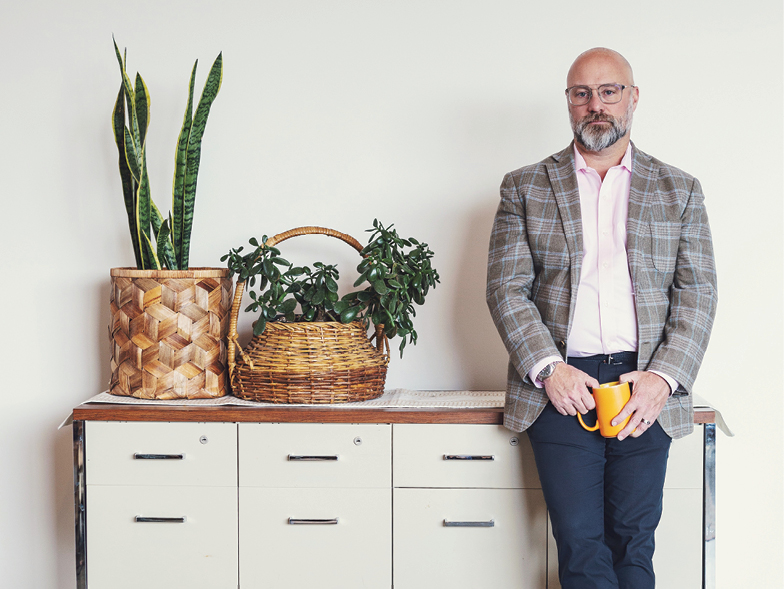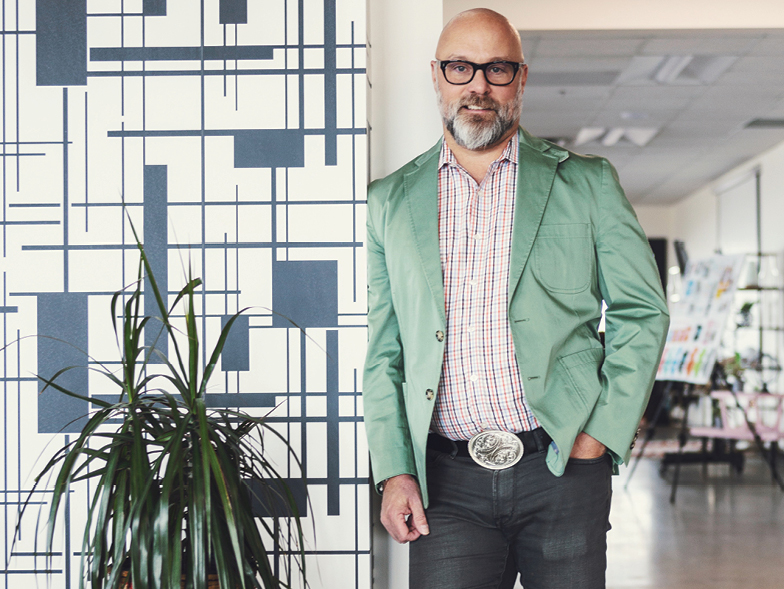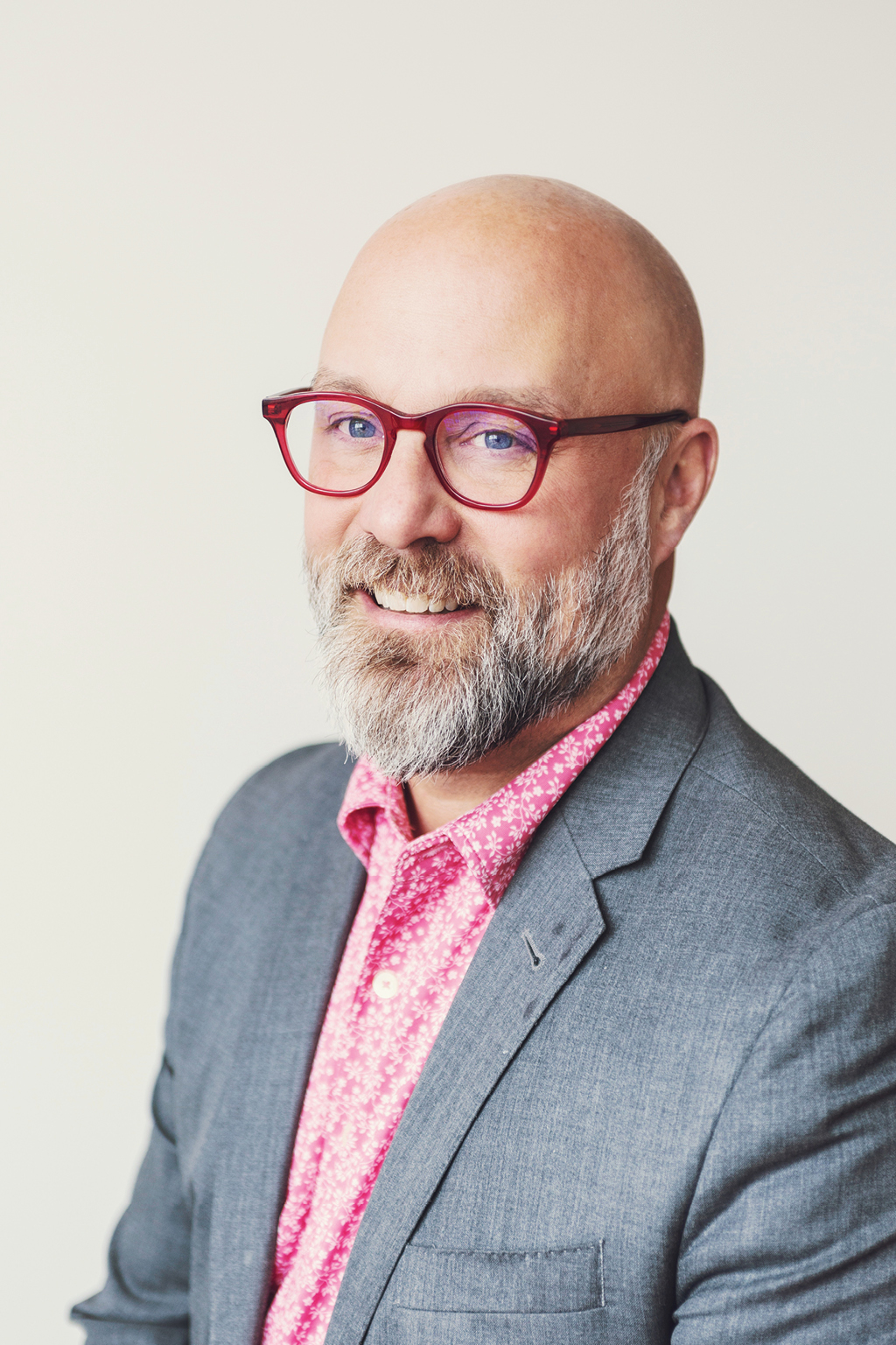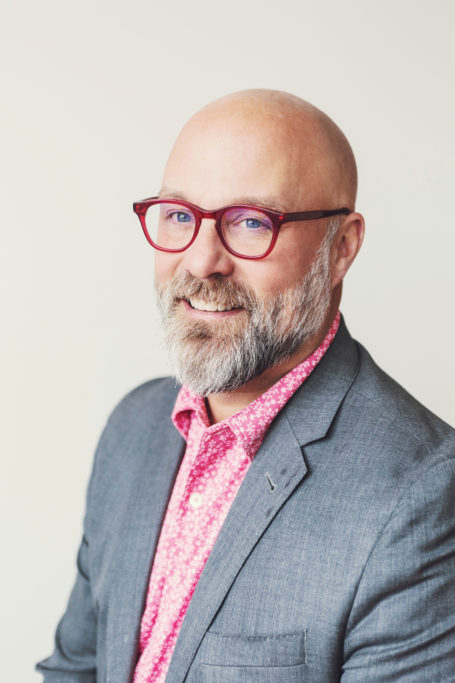How to Be a Grounded Entrepreneur
BIGGBY COFFEE co-CEO Michael McFall tells it like it is, whether he’s sharing what it took to build his multimillion-dollar brand, who he thinks the most important team is in every company, or a trait he calls the CEO disease.

Would you share the BIGGBY COFFEE story and your role in it?
I started as a minimum-wage barista in our first store. I ended up partnering with Bob Fish, the owner and founder. He interviewed me for an assistant manager’s job in March of 1996. We went for a four-and-a-half-hour walk around East Lansing and, by the end of it, we shook hands and agreed to be business partners. We have been developing the brand ever since.
Our MO every single day since we shook hands has been to sell one more cup of coffee today than we did yesterday. Back then, we sold under 300 cups of coffee a day. Today, we’re north of 90,000. We believe in people; we have always believed in people. It is the foundation of our success.
What was the key to the business growing exponentially?
In a word, focus. We’re beverage retailers. We wake up in the morning and sell coffee, and that’s all we’ve done for over twenty-five years. Something that gets a lot of entrepreneurs in trouble is wondering what they can bolt onto their business to generate more revenue. That just makes things more complicated.
Has your company’s vision changed over the years? How do you know if you’re fulfilling it?
We’ve had a catharsis over the past five years. It took us two years to finalize our vision: improving workplace culture in the United States. However, the vision must have metrics associated with it or you won’t know if you’ve achieved it. The two metrics that we’ve implemented are, first, 90 percent of the employees with at least a year at BIGGBY COFFEE will rate us as a nine or ten when asked if the company is supporting them in building a life they love. The other is to be a billion-dollar company at retail by 2028. The purpose side of our vision, which is the people side, is how we’re living out this workplace-culture initiative. The billion dollars is so people will pay attention. [Laughs]

What inspired you to write your book, Grind?
I love to read. But I haven’t found many of the books on entrepreneurship to be authentic. I classify them into two groups. There’s the writer with a nine-figure net worth flying around in a private jet looking back on a business startup through rose-colored glasses at 30,000 feet. Don’t get me wrong: they are entertaining, but there aren’t many valuable lessons. Oftentimes, those books are big ego strokes for the author. The other genre is the academics-studying entrepreneurs. There’s a place for those, too, but they always fall short for me because in academia you never lived it or felt it. I don’t mean to be derogatory to either group, but I wanted to write a book that really tried to capture the essence of how a start-up feels.
You talk about the CEO disease. What is it about?
The CEO disease takes root when the people around you tell you you’re great every single day. It’s the rare person in an organization who will stand up to the CEO and say, “You’re off the mark here.”
To me, the CEO disease is one of self-importance. When I sit and listen to many leaders talk, they suck energy from the room. Everyone’s reading the CEO to get direction, as opposed to having an authentic conversation, bringing real thoughts to the table, and hammering away at solutions. For that to be cured, the leader’s got to shut up and create awkward silence. The amazing thing is if you let awkward silence happen, it allows space for everyone to step in. Introverts have taken time, they have been thoughtful, and what they bring is generally darn good and something that must be considered. The problem is they don’t get those opportunities because the extroverts are rolling and the CEO is holding court. Make space.

What does sales team mean to you?
Amar Bhide studied the Inc. 500 fastest-growing companies for twenty years and wrote a book about his findings. Something which resonated with me is that 85 percent of the CEOs on that list—85 percent!—claim they were the only or primary salesperson at the organization during startup. So if you want to grow your business, you, the entrepreneur, have to be a salesperson. I was the primary salesperson at our organization for fifteen years. I was proud of it. Sales, to me, is business. The most important people in any organization are on the sales team because they’re interacting with customers and figuring out why customers are buying or not buying your products. And that’s all that matters. Your product people can try to develop a better product, but if they aren’t getting the information from the sales team on how to improve the product, it’s a huge miss.
Is clear structure important for entrepreneurship?
Absolutely. Our number one core value is being a systems-driven organization. We have a process for just about everything, and if we don’t have a process for something, we have to figure one out. It kills me when business managers complain about their people. People want to be successful. You need to define what they need to do, prioritize their time, and clearly explain what you expect. They will do it. It’s remarkable how effective that’s been for us. The number one compliment we hear is how amazing our people are, and that’s not an accident. Another thing you’ll hear from executives is “It’s so hard to find good people.” You don’t find good people—people are good in general. What you do is create an environment where people thrive. That’s what Southwest Airlines does: provide an amazing atmosphere that allows people to show up, be themselves, and be successful at their jobs. When I hear someone complain about their team, my immediate thought is “You’re a bad manager.”
In your opinion, what makes a business successful?
We have a franchise model, so I’ve watched hundreds of people open businesses using the same model. There are attributes for both successful owner-operators and unsuccessful ones. It’s all about attitude and enthusiasm. As entrepreneurs, we need to inspire people to keep their heads in the game and have faith in themselves. For example, my business partner and I never doubted BIGGBY and what we were up to. Not once. If you start to lose faith, it’s a real problem and almost impossible to restore. Elon Musk, when asked about encouragement for entrepreneurs, said, “If you need words of encouragement, don’t become an entrepreneur.” I agree. Show up, do what it takes, and stay focused on growth, which for me means improvement, and depend only on the customer validating your business by buying your product. If you do that, you will be fine.
For more info, visit grindthebook.com.


















